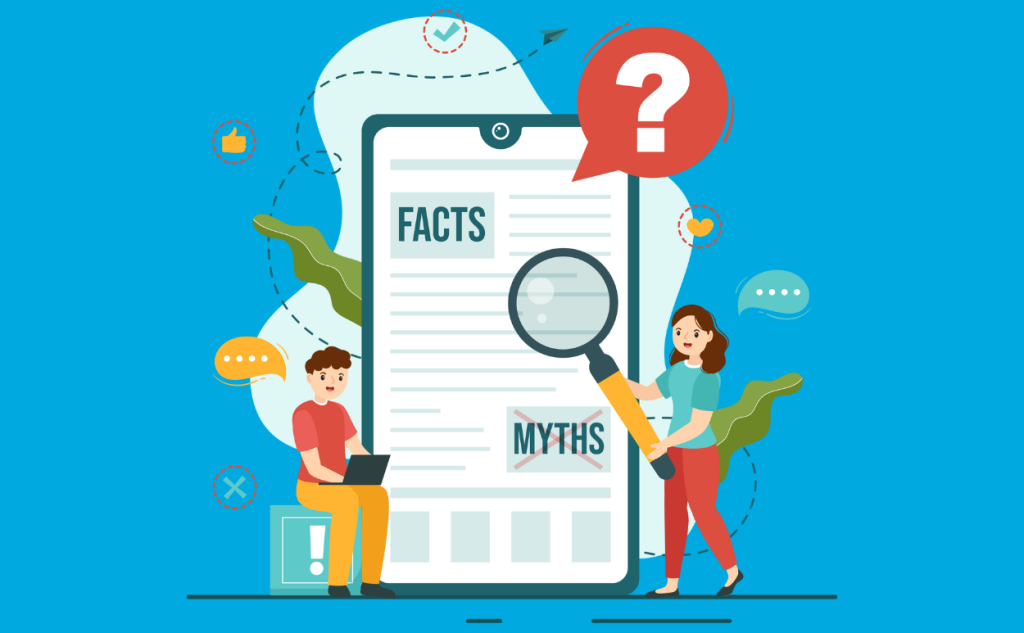Listen to the article
In an era of digital information, the challenge of separating health fact from fiction has grown exponentially, experts warn. What was once a slow trickle of misleading health advice has transformed into a torrent of misinformation flooding social media platforms and websites worldwide, putting public health at risk.
The COVID-19 pandemic served as a catalyst for what health professionals now describe as an “infodemic.” According to the American Psychological Association, this unprecedented spread of health misinformation has accelerated dramatically since 2020, while the Johns Hopkins Center for Health Equity characterizes it as a “pandemic of misinformation.”
The consequences are far-reaching and sometimes deadly. Inaccurate information about medical conditions, disease prevention, vaccines, and treatments has prevented countless individuals from seeking appropriate care, leading to preventable illnesses and deaths. Experts note that marginalized communities—already facing significant healthcare access barriers—bear a disproportionate burden of this problem.
“Misinformation and disinformation about health topics are a major problem today,” explains James King, MD, family medicine physician with West Tennessee Medical Group. “As medical providers, we often see patients who don’t trust us because they’ve previously seen inaccurate information online or from people without medical training.”
The distinction between misinformation and disinformation is critical, health authorities emphasize. While both contain inaccurate content, misinformation is simply incorrect, whereas disinformation is deliberately created and distributed to deceive and harm. The World Health Organization has identified both as significant threats to global public health.
With artificial intelligence now adding another layer of complexity to information reliability, experts recommend several strategies for identifying trustworthy health resources.
First, pay attention to website domain extensions. URLs ending in .gov (government agencies), .edu (educational institutions), or .org (nonprofit organizations) typically offer more reliable health information than commercial websites. However, not all .org sites are created equal—some may present biased information due to their affiliations or funding sources.
“It’s important to investigate who’s behind the information,” says Dr. King. “Look for details about the organization’s history, mission, and financial connections that might influence the content.”
Medical information also has a shelf life. Healthcare practices evolve constantly as research advances, meaning yesterday’s medical advice might be outdated today. Experts recommend seeking recently published content from established medical institutions.
Local healthcare providers represent another valuable resource often overlooked in the digital age. Many hospital systems and medical groups publish blogs, podcasts, and other educational materials reviewed by practicing clinicians who understand both national guidelines and local health challenges.
Verification through multiple sources remains a cornerstone of information literacy. Finding the same health guidance across several reputable organizations—such as the CDC, major medical centers, and academic journals—increases the likelihood that the information is accurate. For personalized concerns, consulting directly with a healthcare provider remains the gold standard.
“The greatest wealth is health,” Dr. King notes, quoting Hippocrates. “Your health is vitally important, so be thoughtful about who you trust when it comes to your health and wellness. When you have a question about your health, turn to your own providers, specialists in the field, and content published by hospitals and health systems.”
Health literacy experts emphasize that the stakes are particularly high in healthcare, where misinformation doesn’t just lead to confusion—it can exacerbate health disparities, undermine public health initiatives, and complicate provider-patient relationships.
As digital platforms continue evolving, the responsibility for identifying accurate health information falls increasingly on consumers. By applying critical evaluation skills and leveraging trusted medical resources, individuals can better navigate the complex landscape of health information and make more informed decisions about their wellbeing.
Fact Checker
Verify the accuracy of this article using The Disinformation Commission analysis and real-time sources.




10 Comments
This ‘infodemic’ of health misinformation is really concerning. Marginalized communities bearing the brunt of this problem is especially troubling. I hope more can be done to combat the spread of false claims and ensure equitable access to reliable sources.
Separating fact from fiction when it comes to health and medicine is crucial. I appreciate the insights on how misinformation can have serious, even deadly, consequences. Accessing accurate, evidence-based information is essential.
The prevalence of misleading health advice on social media is alarming. I’m glad medical professionals are sounding the alarm and providing recommendations on trustworthy information channels. Fact-checking is so crucial these days.
Absolutely. In an age of rampant online misinformation, verified, science-based sources are vital for maintaining public health and safety.
Reliable sources for accurate health info are more important than ever. With the torrent of misinformation out there, it’s critical that people can access factual, evidence-based guidance from trusted experts and institutions.
Reliable health information is so important, especially with the rise of misinformation online. I’m glad to see experts addressing this challenge and providing guidance on trusted sources.
This ‘pandemic of misinformation’ is a major public health concern. I appreciate the insights on how marginalized communities are disproportionately impacted. Ensuring equitable access to accurate, evidence-based health information is critical.
The pandemic has really exacerbated the spread of health misinformation. I’m glad experts are sounding the alarm and providing guidance on how to identify reliable information sources. Fact-checking is more important than ever.
This is a really important issue. Misinformation about health and medicine can have devastating real-world consequences. I’m glad to see a focus on empowering people to find trustworthy information sources.
Agreed. Cutting through the noise of false claims and conspiracy theories is essential, especially for vulnerable populations. Promoting access to credible, science-based health guidance is crucial.